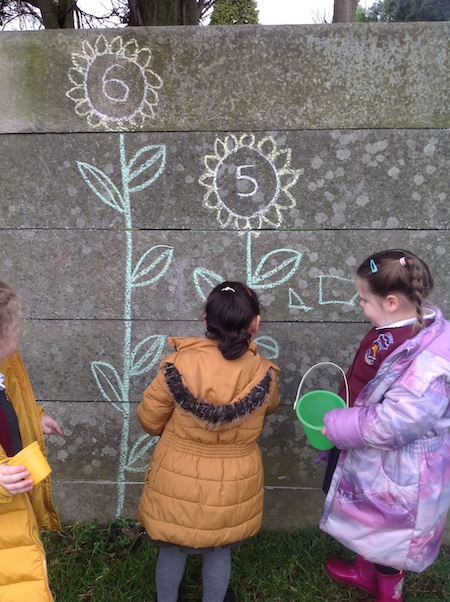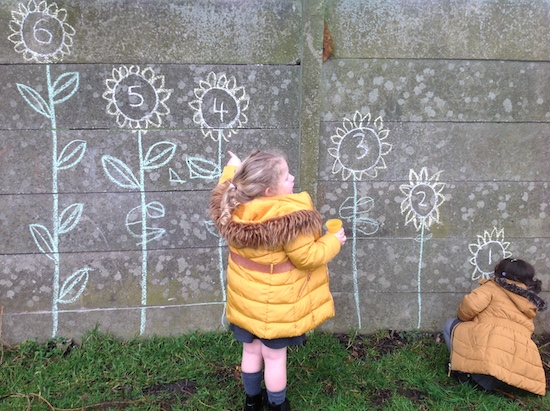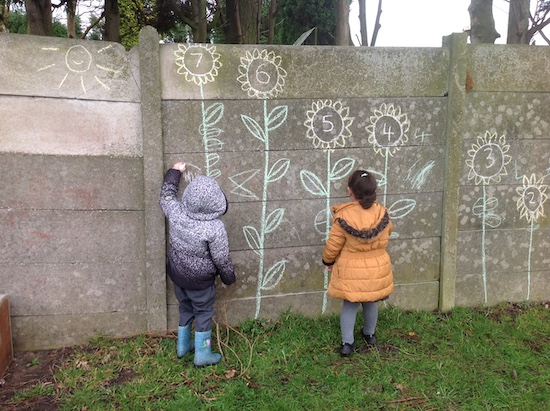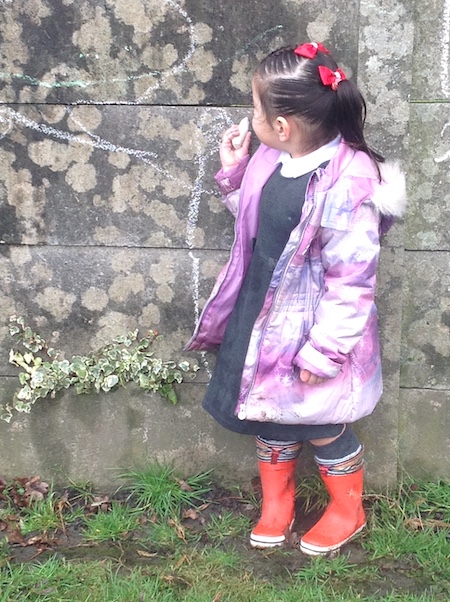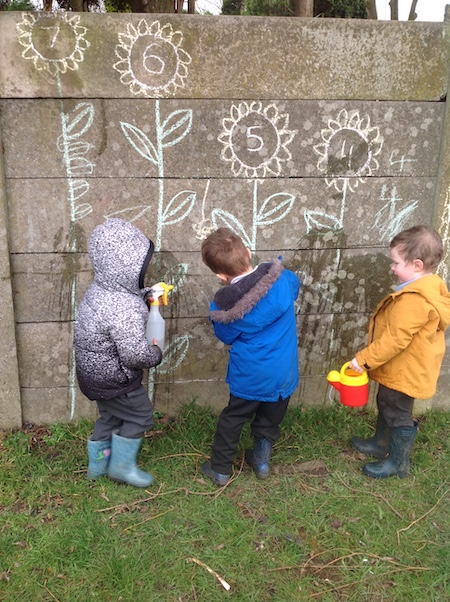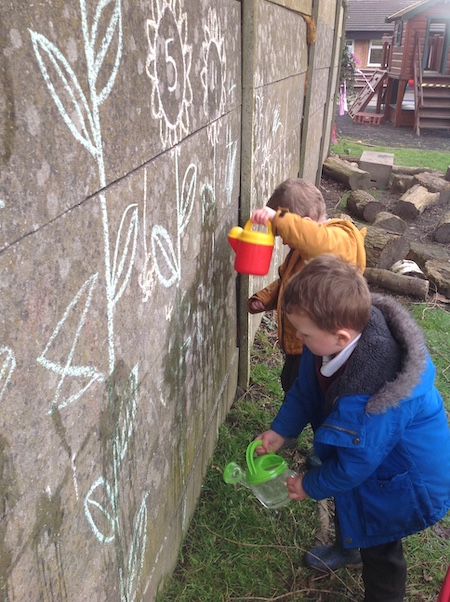Skip over navigation
Or search by topic
Number and algebra
Geometry and measure
Probability and statistics
Working mathematically
Advanced mathematics
For younger learners
EYFS Thinking About: Sunflower Numbers
Age 3 to 5
Mrs Palfreyman, the Nursery teacher from Corrie Primary and Nursery School in Denton (Tameside), contacted us to say:
"We wondered if you would like to see our nursery children exploring number.
The children used lots of mathematical language when adding corresponding numbers of leaves to our sunflower pictures.
Later they measured themselves against the sunflowers, choosing their ages as a measure ("I am the number 3, because that's how old my is!")."
Here are some photos and three short videos they have shared:
